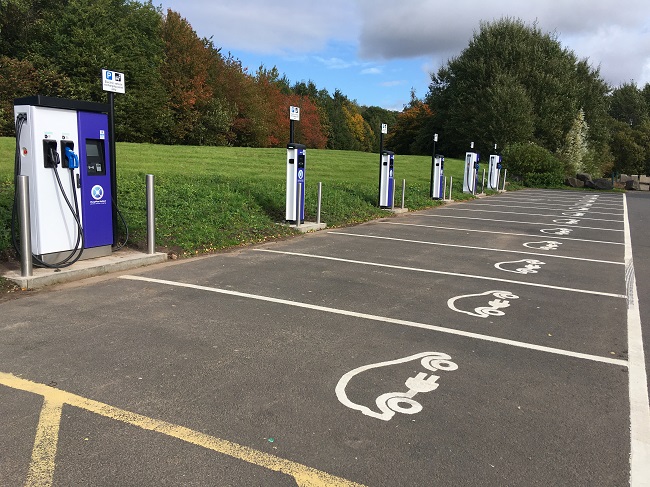BLOG: Welcome to the Green Industrial Revolution
Date 24.11.2020

In November 2020, the UK Government announced ambitious plans for a Green Industrial Revolution.
The announcement coincided with the University of Northampton’s launch of its Climate Change course, which starts in September 2021.
Here, Climate Change Programme Leader, Greg Spellman, provides his expert view on the Government’s proposals.
Last week the UK government announced the £12 billion ten-point plan for a Green Industrial Revolution. It has the potential to mobilise up to an ‘estimated £42 billion of private investment by 2030 across energy, buildings, transport and innovation and the natural environment’. The plan focuses on innovation, outlines the creation of 250,000 green jobs and establishes the government’s commitment to avoiding the consequences of catastrophic climate change. It should be emphatically welcomed.
The plan promises support for green public transport, ‘jet zero’ and zero emission vehicles. Road transport is the single largest contributor to the UK’s carbon emissions, yet progress to decarbonise the sector has been slow in the last three decades. The Prime Minister, Mr Johnson, calls for an increased share of journeys to be taken by public transport, walking and cycling and also an accelerated shift to zero emission vehicles. But, despite recent rising popularity, electric cars still only make up around seven per cent of new vehicles bought in the UK.
The cost of more charging points
The brave and ambitious ban on sales of all new petrol and diesel vehicles by 2030 presents a significant incentive for electric vehicle purchase. This move has been met with some concerns, for instance, about the limited charging infrastructure and the price of vehicles. Access to a local and reliable public charging network is essential for the one-third of drivers who do not have access to off-street parking. Analysis by the Society of Motor Manufacturers and Traders suggests the UK would need to build more than 1.9 million public charging points by 2030. Some 500 per day would need to be added to the network (against the current growth of about 10 per day). The cost is expected to be about £16.7bn.
According to a YouGov survey, car owners are confused about the financial benefits of electric vehicles. Right now, electricity is cheaper than traditional fuels such as petrol or diesel but, although production costs are falling, the initial price of e-cars is still far greater than that of conventional alternatives. The Vauxhall Corsa, for instance, one of the most popular cars in the UK and retailing at about £15,500, compares favourably to its £28,000 electric version. A no-deal Brexit may further compound this as a tariff of 10 per cent would drive up the price of any vehicles imported from the EU.
There are several other concerns about electric vehicles – from the limited distance between charging, the lack of choice, the lack of power, the cost of replacement batteries and the possible stress on the National Grid. Furthermore, the ban is only on the sale of petrol and diesel vehicles and therefore many millions will still be circulating long after 2030 has been and gone.
Electric vehicles undoubtedly will make a significant contribution to addressing emissions and, consequently their widespread adoption is essential. Climate change remains the most serious threat to the planet. Yet we are still left with a large systematic problem. A ‘shift to zero’ does not address the other problems that our automobile-based nation has generated. If electric vehicles end up being cheaper in the long run and are not contributing to dangerous climate change then our incentive to not drive (and subsequently to walk or cycle) is weaker. Electric vehicles could, ironically, increase the scourge that is congestion, road accidents and the excess of space given over to motorised mobility and parking. New housing developments continue to be built around car dependence and are often geographically and socially isolated with an absence of local services. It does little to address the broader sustainability of our communities and way of life.